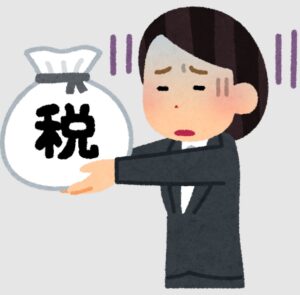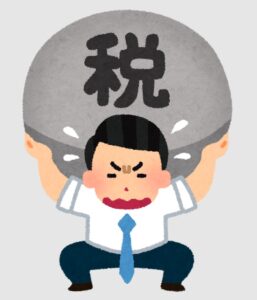管理人オススメコンテンツはこちら
「一気にお金がドン!|知らなきゃ損!収入補償保険の隠れたデメリット」
〜前回のつづき〜
●安心は毎月くれる~でも大金はくれない~

収入補償保険の
デメリットについてお話します。
(1)掛け捨てなので解約返戻金が無い
収入補償保険は掛け捨てなので
解約返戻金はありません。
これは保険の本来の形なので
本来の保険の形なので問題ないというか
特にデメリットではないです。
(2)多額のお金が必要な場合は使えない
・教育費
・住宅購入
など一度に多額のお金が必要になる場合
というのには使えない。
それは別途準備しておくという方が
わかりやすいかもしれないですね。
毎月15万円とかの受け取りなので
例えば
住宅を購入したりとか
教育費でまとめて
数百万円かかるというのであれば
それは使えないですよね。
一気にお金がドン!
と入ってくる訳ではないので。
●ちなみに
なお今回
『割引現在価値』は
無視してます。
割引現在価値について
・難しい
・意味がわからない
という人は
無視しておいてもらえばいい
項目なんですけど
将来のキャッシュフローや
支出の差額を
現在価値に換算したものです。
要は
40歳で死亡して
定期保険で
今すぐ3千万円もらうのと
20年間かけて
3千万円もらうのとでは
価値が違う
という事です。
ちゃんと
管理出来る人なのであれば
一括でもらって
運用した方が得だ
という事ですね。
ただ大抵の日本人というのは
一括で受け取っても
ちゃんと運用できない。
さらにそもそも
金融リテラシーの有る人というのは
過大な保険に入ってないので
こういう選択肢にならない
という事なんです。
・今の3千万円
・将来にもらえる3千万円
同じじゃないかと
思うかもしれませんが
今3千万円もらって
うまく運用した方が
出来る人からすれば得になるし
価値は
今もらう方が有る
という話です。
わからないければ
全然飛ばしてもらって
結構です。
もしかしたら
そういう意見が
あるかもしれないという事で
お話ししてみました。
〜〜〜つづく〜〜〜
Special Thanks college president Ryo.

●おまけ
≪≪perplexityちゃんによる文章まとめ≫≫
収入補償保険の主なデメリットは、まず掛け捨て型であるため解約返戻金がない点です。
保険料を支払っても、期間中に解約すると戻ってくるお金はありません。
また、保険金は毎月一定額ずつ支払われるため、住宅購入や教育費など一度に多額の資金が必要な場合には対応できません。
さらに、保険期間が進むにつれて受け取れる総額が減少するため、期間の終わりに近づくほど保障が薄くなります。
加えて、契約時に決まった金額が支払われるためインフレによる価値の目減りリスクもあります。
これらの点を理解した上で、自分に合った保障かどうかを慎重に検討することが大切です。
[1] https://www.life8739.co.jp/product/shunyuhoshou/column01
[2] https://www.hokennomadoguchi.com/columns/seimei/shunyu/merit-demerit/
[3] https://www.navinavi-hoken.com/articles/income-security
[4] https://www.meijiyasuda.co.jp/find2/light/knowledge/list/17.html
[5] https://hoken-all.co.jp/article-5562/
[6] https://www.41fp.com/media/life-insuarance/syuunyuuhosyouhoken-ha-yametahougaii/
[7] https://media.dai-ichi-life.co.jp/first_step/type/00025/
[8] https://www.meijiyasuda.co.jp/find2/light/knowledge/list/54.html
[9] https://www.tmn-anshin.co.jp/solution/basic/income-protection/
≪≪Chat-GPTくんによる英訳≫≫
~Continuation from the Previous Post~
【It gives you peace of mind every month — but it won’t hand you a lump sum】
Let’s talk about the disadvantages of income protection insurance.
—
(1) No Surrender Value Since It’s a Term-Type Policy
Income protection insurance is structured as a term (non-refundable) policy,
which means there’s no surrender value if you cancel it.
This is actually how insurance is fundamentally designed,
so it’s not really a drawback — more like a standard feature.
—
#### (2) Not Suitable When You Need a Large Lump Sum
For example:
Education costs
Buying a house
This insurance isn’t designed for situations where you need a large amount of money at once.
You might find it easier to think of it this way:
You receive something like 150,000 yen per month, not all at once.
So if you need several million yen upfront —
for example, to purchase a home or cover educational expenses —
this insurance won’t help much.
You don’t get a sudden lump sum payment out of the blue.
—
【By the Way】
We’re ignoring “discounted present value” in this discussion.
If you find the term:
too complex, or
hard to understand,
feel free to skip this part entirely.
But just for reference —
discounted present value refers to converting future cash flows or costs into their present-day value.
In other words:
Let’s say someone passes away at age 40.
There’s a difference between:
receiving 30 million yen immediately through term life insurance,
versus
receiving a total of 30 million yen spread out over 20 years.
Even if the total amount is the same,
the value is not — because money received today is worth more than money received in the future.
If you’re someone who can manage money well,
you’d actually benefit more by receiving a lump sum and investing it wisely.
However, most people — especially in Japan —
don’t have the skills or habits to manage a lump sum effectively.
In fact, people with strong financial literacy
usually don’t buy excessive insurance in the first place,
so they don’t even consider this kind of option.
You might think:
> “Isn’t 30 million yen now the same as 30 million yen later?”
But for someone who knows how to make that money work,
getting it now is far more valuable.
So yes — the value of 30 million yen now is greater than that same amount later.
If you don’t get this part, no problem — just skip it.
I just wanted to mention it,
since some people may have that perspective.
Special Thanks OpenAI and Perplexity AI, Inc








